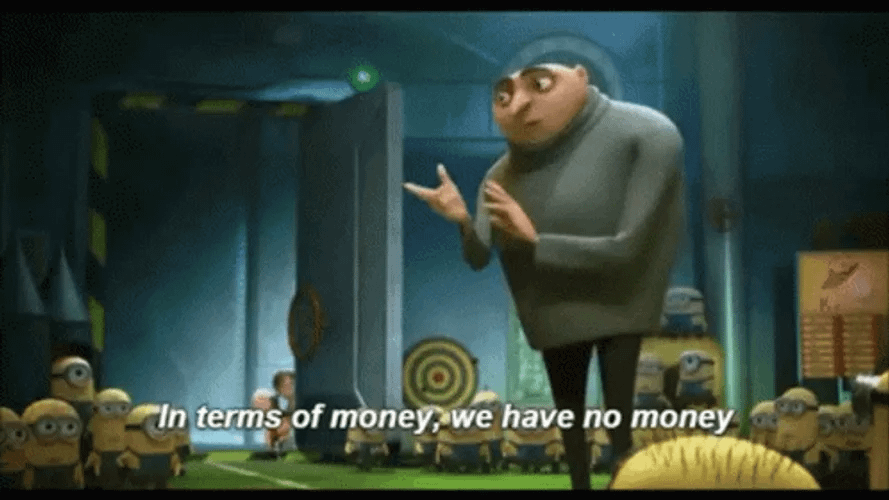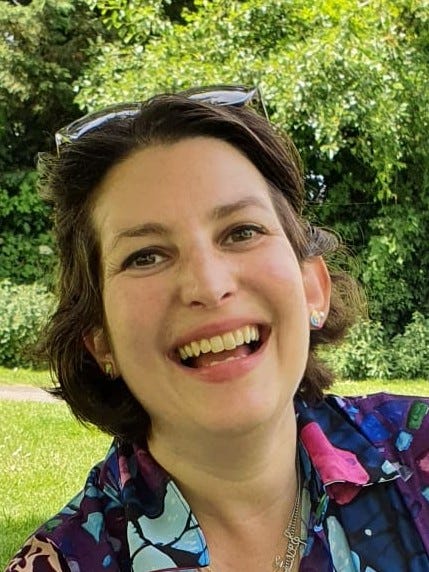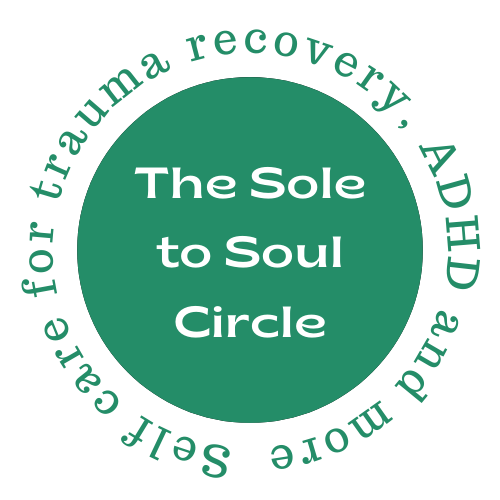Hi and welcome to The Ladybird Purse, my weekly newsletter about women and money. I’m not a financial advisor and not qualified to give financial advice.
I have no money. Wait, sorry, that was blunt. Hi! Good morning! How are you? I have no money. I had a figure in mind that I wanted to keep in my bank account to make me feel (relatively) safe and that is now gone. Zero? Gone. I am in my overdraft. And - and I know I said this last week (and I’ve updated that post because I found the most perfect gif), but I can’t stress it enough - I feel fine about it.
I woke up at 5 this morning (may suggest that I’m not that fine, but I woke from a dream where me and Harry Styles were being hunted with guns, so I was fine about waking up at 5 too) and I started writing this newsletter in my head and I thought I’m worried about money. And then I realised I wasn’t. Not really.
I mean, obviously things are not great. I wanted a cushion, a safety net and I do not have that. I don’t have an emergency fund. I haven’t paid off my credit cards. And I don’t have a plan. And, you know, the world is a hellscape. I know I should be worried. But I’m just not feeling it.
I think this means that I may have really actually fixed some of the money mindset stuff I’ve been trying to fix. (Yes, I appreciate it may really actually just mean that I am an idiot.)
And I know I need to fix this. I do need to pay off my debts. And I need a cushion and a safety net. I want to be able to pay my bills and go out with friends and travel and do things with my kids while they’re still willing to do things with me. And I need to work out how.
Last week I read (sorry, can’t remember where) “What got you here won’t get you there” and I can’t stop thinking about it. I know what got me here. Now I need to work out what will get me there.
No newsletter next week because I’m taking a few days off, but it will be back right at the start of January. Hope everyone has a lovely break.
This newsletter does take time to put together, so if it’s possible for you to support me with a paid subscription I’d be really grateful.
Interview with Eve Menezes Cunningham
Eve is the author of 365 Ways to Feel Better: Self-care Ideas for Embodied Wellbeing and runs Feel Better Every Day (aka selfcarecoaching.net) ~ online trauma informed therapies, coaching, supervision, the Feel Better Every Day online membership and other groups.
Why do you think women are often reluctant to talk about money?
I think EVERYONE is reluctant to talk about money but for some women, earning more than their male partner not only means the extra financial burden for them but attempting to protect his ego and outdated (imo) ideas about man as provider.
Organisations often prohibit employees from talking about salary and the more secrecy and shame there is about anything, the more taboo it becomes. When I went freelance and joined the NUJ in 2004, my favourite thing was their Rate for the Job where other journalists were open about what different titles paid to help us all with negotiating.
What is your relationship with money currently?
I want to automatically say, 'Terrible' but I'm very fortunate. I am living beyond my wildest dreams in my own home on the west coast of Ireland. I get to cycle to the sea for a weekly (at least) swim. I was able to make the move because my writing was already portable and I made my practice portable by moving it all online before the world discovered Zoom with the pandemic.
I think most people would be horrified by how little I have in terms of savings / current account, etc., but I can affort to pay my bills, I have work I adore, am happier than I've ever been and have freedoms that friends who earn WAY more than I could even imagine wouldn't be able to contemplate.
My needs are pretty modest and while I AM working on my money mindset and scaling up the membership programme (my one to one work has been pretty much at capacity for years but I could earn more by having more members) my main relationship with money is one of gratitude.
I spent so many years completely out of my depth and feeling out of control that while there's loads of room for improvement (and from reading people like Melody Hobson, Denise Duffield Thomas, Alvin Hall, etc., over the years I know that the more I have, the more GOOD I can do in the world), I mostly feel lucky.
Yes, the rising living costs hurt and scare me but I live alone and don't have kids. I can (for now) manage. AND I'm working on getting better with money and putting a bit of a buffer in place.
Could you talk a bit about how you came to buy your own home? This is still a pipedream for so many of, particularly women on their own.
I couldn't have even begun saving had I not been able to move back in with my parents for a while. It took way longer than expected but I realise how lucky I was to have parents close enough to London (where I worked when I first moved back) to enable this. I recently saw a rerun of How to Be Good With Money and Eoin McGee pointed out (when a woman was overspending because home ownership felt so beyond her) that if she didn't sort her finances out and start saving properly, she really would never be able to afford to buy a home. I remember overspending myself on frivolous things when I was younger because it felt so beyond me.
I wish I'd learned financial literacy way younger (and typing this, am shame spiralling a bit because I remember hearing Melody Hobson at a conference in NYC back in 2004 and it's only NOW that I'm really paying attention to her advice.
What’s your earliest money memory?
Being burgled! Apparently, I tried to reassure my parents that they hadn't taken the soap. I was 3. We lived in Tottenham, London and after it happened several times, my parents moved us to Essex.
When I worked through Kate Northrup's Money: A Love Story when that came out, I was shocked to recognise this early money memory and how I'd unconsciously sabotaged myself, underearning my whole life (up to then) for fear that until everyone on the planet had enough (the burglars must have had even less than we did), it wasn't safe for me to have anything.
I still have socialist sensibilities (and wish we spent more on ensuring safety, shelter, food, water, education etc for all the world rather than military might and borders) and have done a lot of healing around old beliefs around not being worthy, etc.
The burglary is a fascinating first memory. Do you remember your parents talking to you about money? What did they teach you - either directly or by example?
Both were immigants to the UK from former British colonies. My dad from Ireland and my mum from Kenya (her family from India). I remember my mum complaining to my primary school in Essex that children shouldn't be encouraged to write to Santa because not all parents could afford presents. Looking back, I feel really sad for her feeling like she couldn't even hear about what I and my brother wanted. I think if I had kids, I'd encourage them to want what they wanted while also being clear about what was affordable or not. And I'd do what I could to support them in earning the money themselves for whatever…
When we lived in the US for a year, we were below the breadline (UK teacher salary way lower than US one and we were on an exchange year. Also the pound that year was way down) but it was an amazing experience and I think that while I remember a lot of stress around money growing up, and I grew up not having things that my friends had (eg, I'd get a child's fare to London each week and go to Camden but while my friend would buy a new outfit each week, I'd just look and be inspired. I don't remember feeling jealous, it was simply Not For Me…) and not having anything with brands or any of the cool things but I'm glad in some ways as it meant my identity was never tied up in what I owned…
I'm also really grateful that my parents supported me emotionally - encouraging me to go for it - as well as letting me live there for longer when I started my freelance writing career and coaching/complementary and later therapy practice. A lot of parents would have made it all about the money but they knew that I was in a lot of pain with the endometriosis and full time office work was involving too much sick leave. They also both valued my creativity and fulfillment over job security - and I instantly felt MORE secure as a freelancer because it meant not all my eggs were in the one basket where things might go completely pearshaped and I'd have no way of readjusting…
What’s the biggest money mistake you’ve made?
It all went on cigarettes and alcohol for years (until I quit both in 2001). Other than that waste, I wish I'd started saving and budgeting earlier. There's a gorgeous Irish financial presenter, Eoin McGee, and he uses a salt and pepper pot to illustrate basic financial literacy points on his How to Be Good With Money (RTE) show. I've learned so much because it's simple and sensible and as a DIRECT result of watching one of these reruns the other week, I made an appointment with a pensions advisor for next week.
That being said, I adore my life and wonder if, had I been more successful financially early on, might I have felt trapped in jobs I wasn't cut out for? I was on beta blockers at 22 while under an enormous amount of pressure at work in terms of huge responsibly AND terrible pay (£6000 pa in 1999) - the stress of not being able to afford bills and food plus the endless work has my heart racing decades later just remembering it (and also contributed to the work I adore now).
What’s the best thing you’ve ever spent money on?
My professional trainings (initially to save my own life and increasingly to add to my repetoire and practice for supporting clients). All the complementary therapy trainings, counselling, therapy I had to be in while training, coach trainings, etc.
And my house! Was beyond fortunate to be able to afford a house having sold my flat in Essex. I've planted 32 trees and have never felt more at home anywhere (even though, Indian Irish London born, I sound English and will always be a 'blow in', I've also been incredibly welcomed).
Do you have a pension? If not, do you have a plan?
I will learn more about a Proper Pension Plan on Monday! But (delusional as this may sound) I guess I always thought I might become a best selling author and THAT would sort me out.1
My work is the kind of work I can do into pretty old age, all being well with health and mental acuity so am fortunate in that way, too. But yes, it'll be good to properly sort a pension (AND keep writing).
Update: How did you get on with the pensions adviser?!
The pensions advisor was amazing. I have an excellent action plan which I'm very much looking forward to implementing. I want to start putting a little away each month (a hundred euros) and think that'll have a big impact on my financial selfesteem as well as future financial wellbeing.
That being said, while I came home brimming with enthusiasm, an exciting work opportunity came up and that took every spare minute that week, then I had my driving theory test to study for (I passed! Now I need to save for driving lessons and a used car, insurance etc etc) and my birthday and the papers he gave me are where I left them that day.
I still need to work on that part of me that WANTS to grow up around money but doesn't find it very interesting. I would do better focusing on the benefits of financial security etc but know that getting it all sorted in the next week or so will help me long term…
What would you do with £10,000?
Happy Dance! I'd buy a preloved car and start driving lessons, give some away, buy a new laptop and take a little holiday… In reality, would also need to put some into the house (the attic needs work).
Ha! Have already spent this fictional windfall!
Relateable.









Being willing to share household expenses is HUGE. I invited my son to move back home when he was young. With no rent, utilities etc, he paid off his car and student loans quickly. He covered his car insurance and phone and personal expenses, but he was able to make like four or five payments per month on his debt. When he moved out, his student loans were gone, his car was paid for, he had an emergency fund and enough cash to purchase decent furniture. It really set him up.